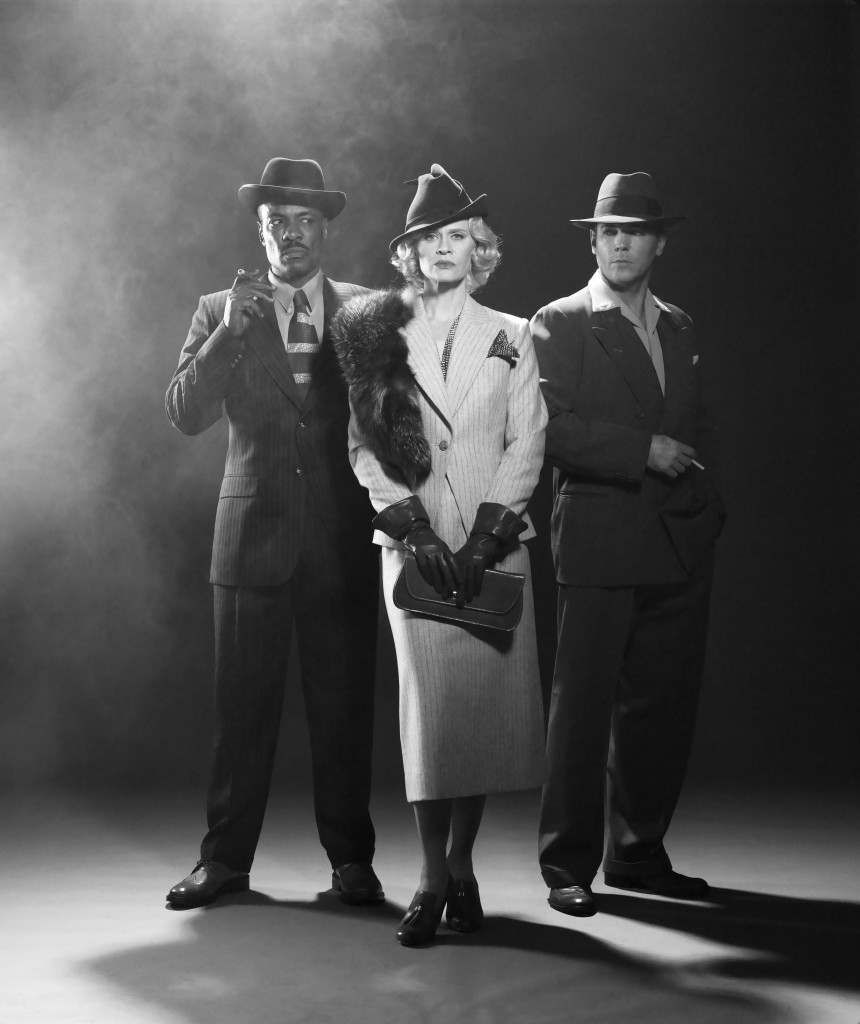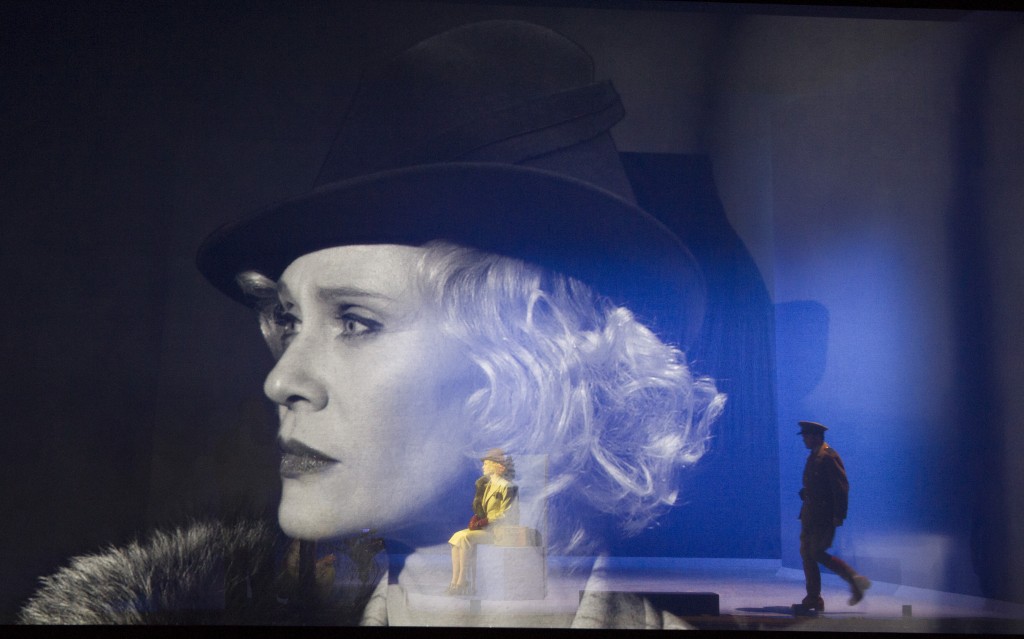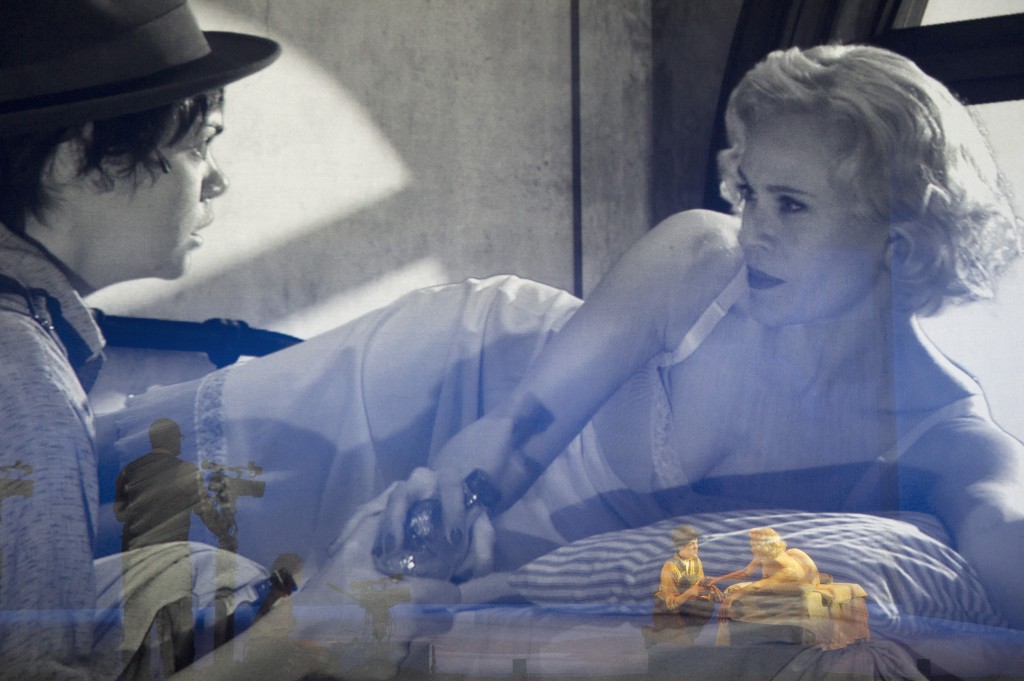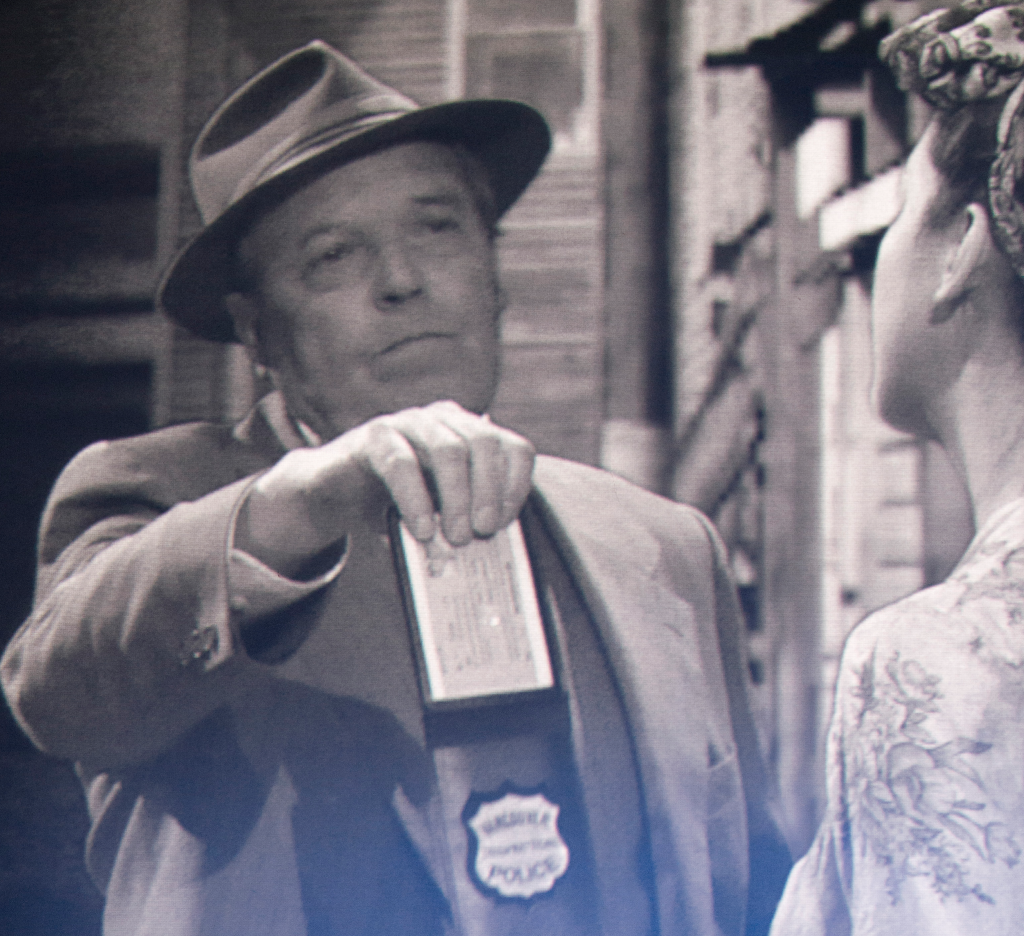
Credit: David Cooper
At The Stanley until April 13
604-687-1644/artsclub.com
Posted March 22, 2014
The ‘wow’ factor in Helen Lawrence is huge. So hyped has this show been no one believed it could live up to expectations. But from a technical and aesthetic perspective, it really does.
Conceived by visual artist Stan Douglas (whose monumental installation “Abbott and Cordova, 7 August, 1971” graces the Woodward’s Atrium) and written by Chris Haddock (Da Vinci’s Inquest), this world première goes on to Montreal, Munich, Edinburgh and Toronto.
An experiment in fusing theatre and film, the film noir plot is worked out on two levels: behind a see-through scrim, actors play out scenes that are simultaneously being filmed and projected in black and white on a cinema-sized scrim. We see, only in silhouette through the scrim, three or four cameras filming the action. On the big scrim/screen, we see close-ups and hear dialogue emanating from the ‘celluloid’ characters, not the flesh and blood actors
Behind the scrim, the actors are isolated in bright light and appear to exist in a vacuum; there are no props, no set. But Douglas has blown up archival photos of Vancouver – Hogan’s Alley, for example – and projected those on the screen so that Haddock’s characters exist and move in downtown Vancouver in the late 40s. Most of us, I suspect, have no idea how all this is done. And it’s beautiful.

Credit: David Cooper
It’s a typical film noir story: Helen Lawrence (portrayed by cool and lovely Lisa Ryder), recently released from a sanatorium, took the rap for the murder of her rich husband. Now she’s in Vancouver looking for Percy (Nicholas Lea), her old boyfriend, who was the real killer. She is, in the vernacular of the period, “packing heat” – a small, loaded gun.
Woven into this main plot is the story of Muldoon, a corrupt police chief (Gerard Plunkett) and drug dealers, prostitutes and gamblers. If we often don’t know where to look – the ‘real’ action or the filmed action – we also lose track of the main story amidst all the subplots involving Harry (Hrothgar Matthews) and Julia/Joey (sparky Haley McGee); brothers Henry (Sterling Jarvis) and Buddy (Allan Louis); Sergeant Perkins (Tom McBeath), prostitute Rose (Mayko Nguyen) and more.
In spite of well-seasoned stage, film and TV actors, the plot isn’t all that satisfying. And ‘The End’ flashes up on the screen just when things get really interesting.

Credit: David Cooper
However, I don’t think the primary aim of Helen Lawrence is to tell a story; it’s all about how a story is told. Stan Douglas is asking us to think about film versus stage as well as to question our lives in in increasingly digitized world. Face-to-face conversation is giving way to texting and given any kind of screen, we will watch it. Probably 80% of the time, the Stanley audience will watch the screen, not the actors. The implications are enormous when you think about it. Would it be a kinder society if we texted less and talked to each other more? Had a handful of friends, not thousands of Friends?
And Douglas invites us to share his enthusiasm about Vancouver’s architectural and cultural history. Where is the city going? While we can’t turn back the clock it’s important to remember where we’ve been.
Co-produced by the Arts Club Theatre Company and Canadian Stage, and directed by Stan Douglas, Helen Lawrence is a provocative experiment. It boldly, beautifully pushes theatrical boundaries in a way that we have not seen to this extent in this city before. Hi-tech entertainment of this kind will not replace the power of a few actors in a small black box theatre but it will raise a lot of questions about art and the distancing effect of technology both on stage and off.
The debate promises to be lively.


